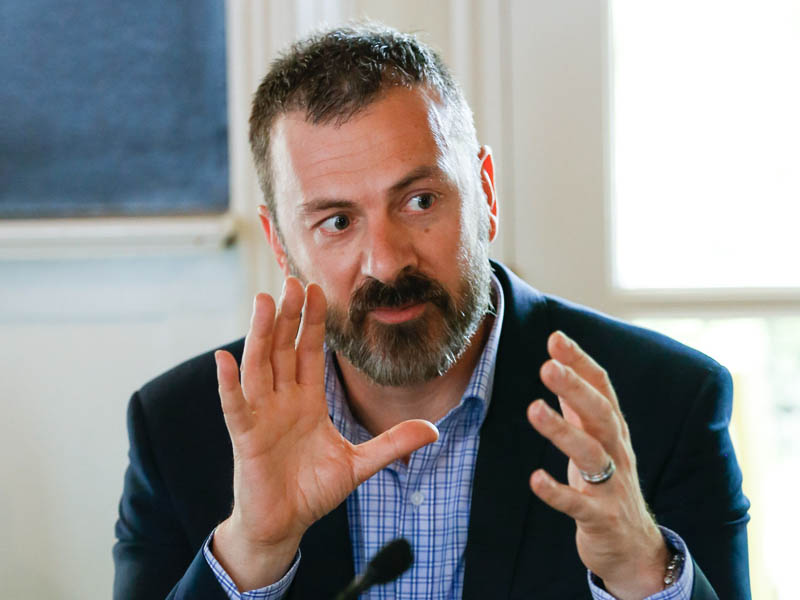Adrian Turner is the chief executive of Minderoo’s Wildfire and Disaster Resilience program. It should be no surprise that he has spent a lot of time developing his thinking on ‘mission methodology’ and the frameworks for solving system-level challenges.
By definition system-level challenges have lots of moving parts and lots of different active players and partners. ‘Solving’ such challenges requires the different participants within the system to work together.
That makes the challenges of any mission as much about structures and frameworks as it is about culture and the management of the response.
Mr Turner, who is a former Data61 chief executive and Silicon Valley veteran, says the same thinking can be applied to industrial policy and the development of new industries that will drive the Australian economy.
Adrian will appear with Silicon Quantum Computing director Michelle Simmons and Business Council of Australia chief executive Jennifer Westacott at the Australia-Israel Chamber of Commerce “Creating Australia’s Industries of the future” event on June 9. You can register for the Business Briefing here.

At Minderoo, Adrian Turner is working on a program that aims to identify and extinguish any bushfire outbreak anywhere in Australia within hours. That’s the mission. Minderoo won’t achieve this on its own, because any response involves an entire system of emergency services, communications companies, government policymakers, volunteer community groups, and big business.
But breaking down the challenge and the component parts of the system lets you better understand that gaps. And then you can start to apply resources to the areas of specific need. But it starts with a mission.
That can be applied to the development of new industries, because it is a system-level challenge. If you think about building a quantum industry in Australia, that’s not going to be achieved by a single company, he says.
“We have been too focused on a linear transition from idea to research to prototype to creating a company to building a global company,” Mr Turner said. “But it’s a non-linear issue if we start at the other end and look at what are the big problems we need to solve, or the big opportunities that we need to engage.”
He uses the challenge in the agricultural and food sector of seeking greater levels of ‘traceability’ across our supply chains. “That’s a system-level opportunity because if we can get that right, it means we will be able to command a premium – because we can assure a higher quality.”
But to get there needs elements of policy and advocacy, new economic business models, or there could be a need to unlock value from government-held data. There might be off-the-shelf software that could be applied, or there could be gaps that need further research.
The point is that the challenge requires that all of the parts of a system be identified – including the gaps – and then it needs to be drawn together: “That’s what unlock system-level change. But it has to start with a problem.”
Mr Turner said there had been some good digital economy work coming out of Prime Minister and Cabinet “that clearly communicates that this is a whole of government, whole of country priority to not only digitally transform existing businesses, but also to create new industries.”
“Quantum is a great example of that. Precision genomics and precision medicine are another. Renewable energy is another. The whole area of spatial intelligence that plays into robotics and industrial automation [or] earth observation that helps out agricultural and minerals sectors are all underpinned by digital technology in some way.”
“That centralised management of a whole-of-government, or whole-of-economy strategy makes a lot of sense.”
InnovationAus is a media partner for the AICC Business Briefing Creating industries of the future event. You can register for the event here.
Do you know more? Contact James Riley via Email.

